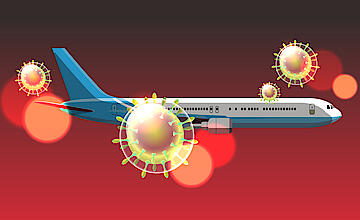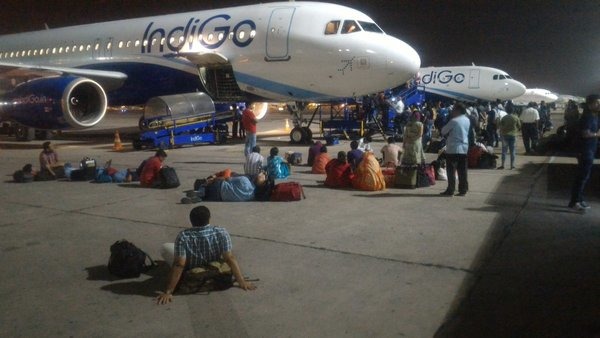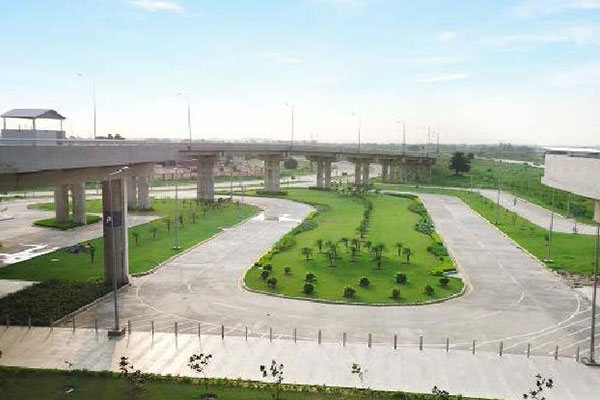 Introduction
Introduction
Management by disruption has been adopted by many companies in the past to make a paradigm shift in adapting to the new technologies or new business models or to suit the new environment resulting from acquisitions, mergers, etc. Unlike such a change management, the spread of COVID-19 virus across the globe is a disruption unprecedented. Almost the entire world population is either under lock down or trying to cope with the virus spread. Aviation industry, being a global activity in nature, has been greatly impacted by this disruption. There will be references like pre and post COVID period.
Impact
The impact and damage assessment will be unrealistic till the virus spread is largely contained. However, we can never expect normalcy to be restored in aviation and there will be a new normal evolving with new bench marks.
Disruption caused by COVID-19 spread across the globe is likely to result in the following challenges and opportunities.
Challenges
Latest IATA survey2 reveals that 86% of the passengers surveyed in 11 countries would wait for up to 2 months after lockdown to resume air travel while 40% would like to travel only after 6 months. The lack of passenger confidence and fear psychosis may result in fewer travellers. There is going to be a seismic shift in the revenue models for airports and airlines. Many private operators may find it economically unviable to operate airports and airport management may shift to public domain as in ore-liberalisation times.
Aviation industry needs to quickly accept that the standard operating procedures (SOPs), protocols, frameworks, business models and the whole eco-system around the aviation activity will be different. Some airlines have announced closure and many more are expected to follow suit. Numerous leasing companies will wind-up. Many aircraft, especially the wide bodied ones, will remain grounded as the cost of maintenance will be too expensive with lesser revenues. MRO services have to re-align to cater for the likely increase in smaller aircraft. Many jobs across verticals will be lost. IATA is expecting the aviation industry job loss to the tune of 29 lacs in India alone. Large scale multi-skilling and re-skilling will be needed to create lean workforce. Many crew members will lose currency of ratings due to aircraft being on ground for long requiring regulators to give the required waivers. Air Crew may even lose their licenses due to medical issues and non-renewal of medical status.
Social distancing will become part of life, resulting in middle seat vacancies, longer waiting, longer turn-around times, etc. Touchless technologies and machine readable documentation will be put to use. Security processes, technologies and SOPs will undergo changes. Baggage handling will be different. The concept of lounge will undergo a sea change. Many concessionaires will lose economic viability and wind-up. Luxury brands may vanish from the terminals. Catering and food outlets may find less customers. Business travel will reduce drastically as executives will make do with video conferencing. Public transportation will see less foot fall and private transportation may increase. Expenditure on hygiene and sanitation by airport management will increase. Thermal scanners will be in operation. Last minute cancellations at security gate level will increase due to enhanced checks.
Use of private transportation will increase the consumption in petroleum products. Thus, the aviation fuel may cost more. The government and airport management will look for higher taxation on passengers to off-set the revenue loss from other avenues and cater for subsidies. The cost of air travel will go up.
Opportunities
Demand for business aviation aircraft will go-up. Executive jets will be in demand. Charter flights will be preferred for group travel. Cargo flights from hitherto unconnected tier-3 cities / towns will be more. Agri-aviation and Cargo hubs will generate traffic. Mergers, acquisitions and consolidations will happen. Huge scope for aviation training especially the multi-skilling. Low cost carriers may rule the skies.
Conclusion
The world will never be the same for aviation and every rule book related to aviation activity will need to be reviewed to align with the new eco-system that will evolve. There can never be a normal that existed before 1st January, 2020 in the world aviation. Many established names will vanish and the new ones will arrive in due course. All stakeholders, be it the travellers, operators, aviation shippers, supply chain managers, employees, investors, regulators et al will have to accept a slow process to rise from the abruptness in closure of aviation operations. Let’s tighten our seat belts for a long haul in recovery from the current situation while hoping that virus spread is contained soon.



